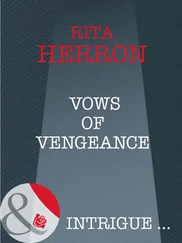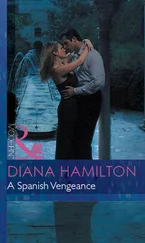“A possible sighting on Stage Coach,” I said to Lindsey. “Near the high school. Another on Alvarado. The best news is nobody’s found him dead on the road.”
“I don’t like the idea of coyotes tearing apart that poor tubby thing.”
“That’s another thing you’ve got, Lindsey. A good heart.”
She looked at my computer monitor. “Are you going to the mosque?”
“I need to.”
“So if Oxley and I are your two open cases, the mosque visit must be for me. Watch your back, Roland.”
“Always. Tell Rasha no on the horse show, but let him know you’re open to communication. On your swanky new Walmart flip phone. Call Brandon Goff, too. Tell him you’re still strongly in favor of joint custody. Tell me how he takes that.”
“It’s not Brandon.”
“Help me help you.”
When Lindsey had shut the door behind her, I checked the Arabian Horse Association website events calendar. All five of their big national events had already taken place for this year, from early summer through fall. But there was a Western Region “Native Costume” exhibition coming up next week in Tucson, Arizona. Among the featured competitors in the youth division was rider Edward Samara and his mare, Al Ra’ad. A check of Arabic names revealed that Al Ra’ad means “the thunder.”
As in The thunder is coming for you.
The Arabic word for mosque is masjid . Masjid Al-Rribat Al-Islami is on Saranac Street in San Diego, twelve miles from the San Diego Joint Terrorism Task Force building downtown.
It is a two-story stucco structure, rectangular and off-white, with pale blue tile accents. A chest-high stucco wall with small wrought-iron archways surrounds it. The main entryway to the compound is protected by metal gates with lancet arches in the same pale blue as the tile. It is neither defensive nor welcoming. Six years since I’d been there.
Today’s sunset prayer ended at 6:38. I watched the men exit the downstairs prayer room, a spacious, high-ceilinged, red-carpeted area with no furniture and few windows. The ceiling was stained glass, but at this hour winter’s early dark owned the colors. I smelled lamb and garlic faintly easing in from the dining room, felt my stomach approving.
The youth activities imam was the last man out. He’d put on some weight since I’d last seen him. Early thirties, bearded in the Muslim custom, dressed in a white thobe that reached the floor and a white turban tied at the back. We shook hands.
“A good thing to see you again, Roland.”
“And you, Hadi. Thanks for seeing me on short notice.”
His office was upstairs, small and warmly lit, two of the walls lined with leather-bound books. Hadi Yousef had always been open and candid with me — as far as I knew — and I had always kept his name out of larger JTTF circulation. He had been a very young imam in charge of youth activities when I first met him. He humbly dodged media and law enforcement in all of its many forms. He was my source because he had come to trust me. I’d done little to earn that trust, except state my respect and pity for the citizens of Fallujah while I was deployed there. Good enough. Yousef had been born in Iraq and thought terror was a scourge that infected not only America but also Islam. He told me once that the saddest time in his life was when the United States abandoned Iraq, leaving Islam to declare war on itself. He had told me something that rings true: that Islam is terror’s biggest hostage.
After pleasantries dictated by respect and distance, I came to the reason for my abrupt visit. “I’ve heard about a Latino man who has been coming here recently. I’ve heard that his behavior is causing some concern.”
“This came from Agent Taucher,” he said.
I nodded.
Hadi set his elbows on the desk and touched his fingertips softly. He wore heavy, black-framed glasses that looked old and unfashionable on his young face. “Hector Padilla. He has been coming for prayer and worship for two months now. Not every day, but two or three times a week. I don’t know where he lives. He is in his late twenties, and not married. He introduced himself as a lapsed Catholic. He said he had spiritual emptiness. He said he had recently broken up with a Muslim woman. He had purchased a Qur’an and some booklets on Islam. One was ‘Welcome to Islam.’ He also had an Arabic language learning program on CDs. He brought them all with him in a backpack the first time he visited us. He poured them out of his pack, right onto my desk here, as if showing me proof of his devotion. During his first few weeks here, he appeared meek and inquisitive. Earnest. He was interested in meeting single Muslim women. We have informal singles activities which are supervised, and Mr. Padilla has attended some of them. I’m not here for those, generally. I guide the youth, as you know.”
“Mind if I write some notes?”
“If you must.”
I slipped my leather notebook and a pen from my coat.
“How did that go over?” I asked. “Mr. Padilla being openly interested in the women here?”
Hadi flared his fingers and gave me a “you never know” expression. “Some of our worshipers find his interest in Muslim women to be... inappropriate .”
“Do you?”
“I try not to judge. But I find Hector himself to be annoying.”
“How so?” I asked.
“His willingness to renounce his own faith in favor of mine.”
“Do you sense falsehood in it?”
“I sense weakness.”
Hadi regarded me from behind the thick lenses of his glasses. Calm but alert, the same keen forbearance I’d seen in most of the various priests, ministers, rabbis, and other holy men I had dealt with in my thirty-nine years. It must come from being closer to God than I am.
My relationship to God would have fallen into the “needs to improve” category until April 7, 2004, at 2:17 p.m. in Fallujah, Iraq, when a skinny boy threw a homemade bomb at my feet and it didn’t explode. Which got me thinking that God might be a lot closer than I’d thought, and maybe He even kind of liked me. I believed that until April 21 of 2015, when Justine’s custom-painted pink Cessna 182 — Hall Pass — crashed into the Pacific Ocean not far from Point Loma. Mechanical failure. Fuel pump. Low hours on it. An accident. Whose accident? I was infuriated with God and am still not completely over it. I try to forgive Him. I listen and try to hear Him. The worst of my fury is gone.
“Has anyone said anything to Hector about his behavior here?” I asked.
“Not that I know,” said Hadi. “I think the imam is considering what to do. Of course, we are open to new believers. But not men of low quality.”
“Are you expecting him again, on a certain day or time?”
He sat back and folded his hands over his middle. Like many Muslim holy men, his hands were expressive and emphatic. I wondered if this was formally taught.
“He lingers in the brothers’ prayer room during the sisters-only Tuesday Qur’an classes,” said Hadi. “To glimpse them coming and going. So, tomorrow at one thirty. He also has attended the Wednesday and Saturday beginners’ Arabic classes, after evening prayer. Please do not confront him directly here at the masjid.”
I nodded, then wrote “Caliphornia” across a notebook page, tore it out, and handed it to Hadi across his desk. No facial reaction whatsoever.
“I have never seen this word spelled in this way,” he said. “What does it mean? Where did you see it?”
“Someone is using it as a name,” I said. “He signed a death threat using it.”
“A death threat against whom?”
“I’m not free to say.”
Again, the patient stare. “Is Hector suspected of the threat?”
Читать дальше












